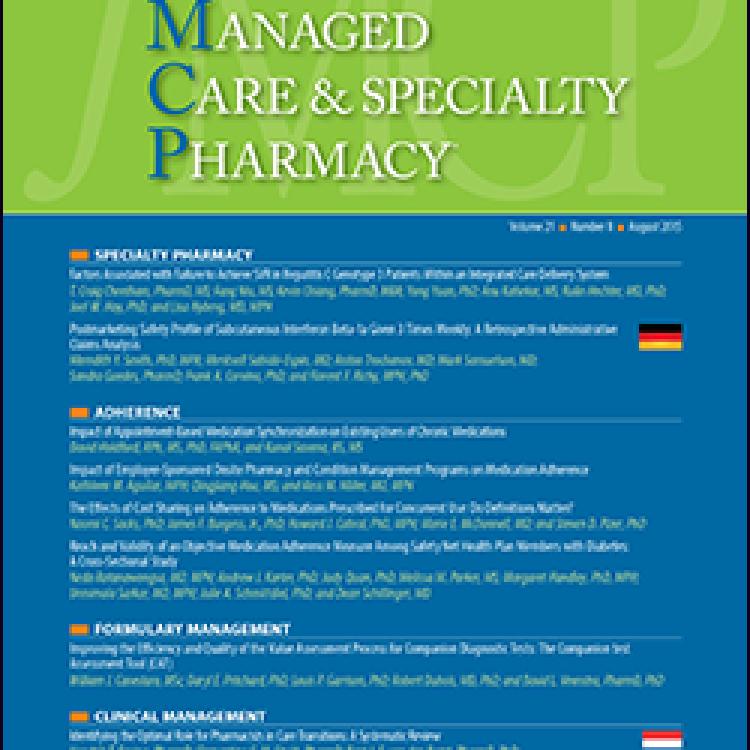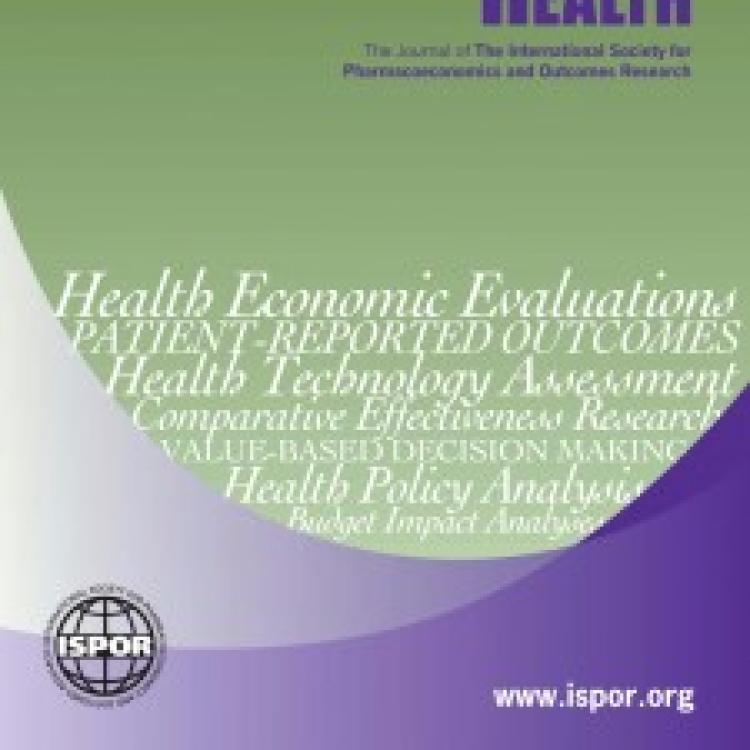Resources
The National Pharmaceutical Council (NPC) is a health policy research organization dedicated to the advancement of good evidence and science, and to fostering an environment in the United States that supports medical innovation.
Filter by:
Topic
Topic
- Accountable Care Organizations
- Alternative Payment Models
- Biopharmaceutical Innovation
- Bundled Payments
- Clinical Pathways
- Decision Frameworks
- Elements of Value
- Evidence for Decision Making
- Formulary/Benefit Design
- Formulary Development
- Good Practices for Evidence
- Health Care Quality Measures
- Health Spending
- Health Spend Management
- High-Deductible Health Plans
- Impact on Outcome & Spending
- Individual Treatment Effects & Personalized Access
- IRA Implementation
- Low-Value Care
- Pandemic Response
- Patient Cost Sharing
- Paying for Cures
- Pharmacy Benefit Managers (PBMs)
- Policy & Regulatory Barriers
- Real-World Data
- Real-World Evidence
- Regulatory Barriers & Challenges
- Understanding Health Spending
- Utilization Management & Step Therapy
- Value-Based Contracts
- Value-Based Insurance Design
- Value Assessment
- Value Assessment Frameworks
- Value Assessment Methods
Resource Type
Display Only
Showing 1216 Results
#TBT: Restrictive Formularies & Potential Pitfalls
As part of our Throwback Thursday blog series, we’re taking a look at a topic that’s currently in the news and tagging it with previous research, videos or commentaries in a relevant way. As the…
Access to Medications, Adherence Go Hand in Hand
If the lack of medication adherence were an easy problem to solve, then everyone would be taking their medicines as directed, there would be no need for iPhone apps or electronic pill bottle…
Why You Need to Register for Our Health Care Quality Measures Course
The National Pharmaceutical Council (NPC), in partnership with the University of Maryland School of Pharmacy, will launch an educational course that addresses a critical topic among many health care…
Why Adhering to Doctors' Orders Is Important
Doctors prescribe medications with the expectation that patients will take them correctly, which is called medication adherence. However,most patients do not follow doctors' orders, which can be bad…
#TBT: Amarin, Biopharmaceutical Communications and a Look Back at Caronia
For #TBT, NPC takes a look at US v. Caronia and its potential implications for biopharmaceutical communications.
#TBT: Medicaid’s 50th Anniversary & NPC’s Medicaid Compilation Series
On July 30, 1965, President Lyndon Johnson signed into law Medicaid, a state and federally funded program that offers health coverage to certain low-income people, the elderly and individuals with…
Are You a Clinical Decision-Maker? Register for Expert-Endorsed CER Collaborative Tools to Be “Better at What You Do”
The growing availability of new research poses challenges and opportunities for those creating, communicating or using research to inform clinical decisions. There is little guidance on how to…
How Can We Assess the Value of a Companion Diagnostic Test?
When President Obama pledged $215 million for a Precision Medicine Initiative during his State of the Union address earlier this year, he acknowledged how far biopharmaceutical innovation has come…
Improving the Efficiency and Quality of the Value Assessment Process for Companion Diagnostic Tests: The Companion Test Assessment Tool
This peer-reviewed study examined some of the barriers to incorporating a Companion Diagnostic Test (CDT) into drug treatment decisions and outlined a framework to assist managed care…
High-Deductible Health Plans, Pharmacy Benefits & Better Practices
It is the time of year when many employers, insurance companies and health exchanges are finalizing decisions about coverage and benefit options for 2016. Among other coverage trends, more employers…
#TBT: 10 Prescribing Principles for Older Patients & #WHCOA
A supplement to the peer-reviewed magazine Pharmacy & Therapeutics, “Individualized Prescribing for the Elderly,” (and our #TBT pick of the week) explained that the selection of pharmaceutical…
When Does FDAMA Section 114 Apply? Ten Case Studies
There is hesitation to disseminate comparative effectiveness research because of ambiguities in the law that was established to help biopharmaceutical companies engage health plans around real-world…
#TBT: Forgetfulness & Medication Adherence
As part of our “Throwback Thursday” blog series, we’re taking a look at a topic that’s currently in the news and tagging it with previous research, videos or commentaries in a relevant way…
Medicare Part D – A Beacon or a Warning Light?
NPC President Dan Leonard says the Medicare Part D prescription drug program has by nearly every measure been a success, but there is room for improvement, particularly when it comes to managing…
NPC Comments on ASCO Value Framework
The American Society of Clinical Oncology (ASCO) on Monday released a conceptual framework--“A Framework to Assess the Value of Cancer Treatment Options”--for assessing the value of new cancer…
#TBT: Calling All Former NPC/APhA Summer Industry Interns
As part of our “Throwback Thursday” blog series, we’re taking a look at a topic that’s currently in the news and tagging it with previous research, videos or commentaries in a relevant way…
Considering Efficiency and Fairness in the Design of Prescription Drug Benefits
Is it appropriate to charge a patient with a higher co-pay for a particular drug if his or her biological makeup requires the use of a treatment that is on a higher-tier of the prescription drug…
#TBT: Men’s Health Month & Differences in Prostate Cancer Treatment
As part of our “Throwback Thursday” blog series, we’re taking a look at a topic that’s currently in the news and tagging it with previous research, videos or commentaries in a relevant way…












